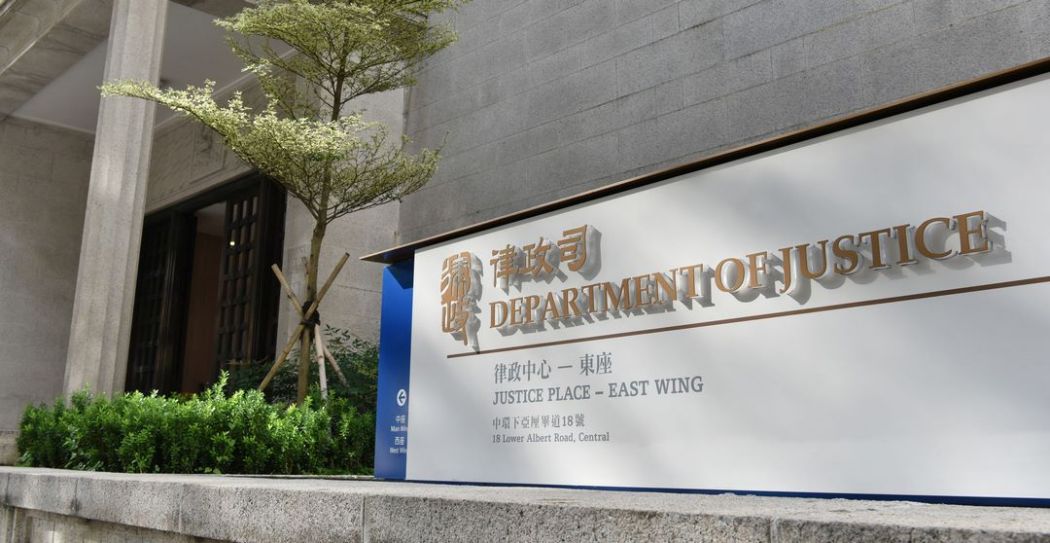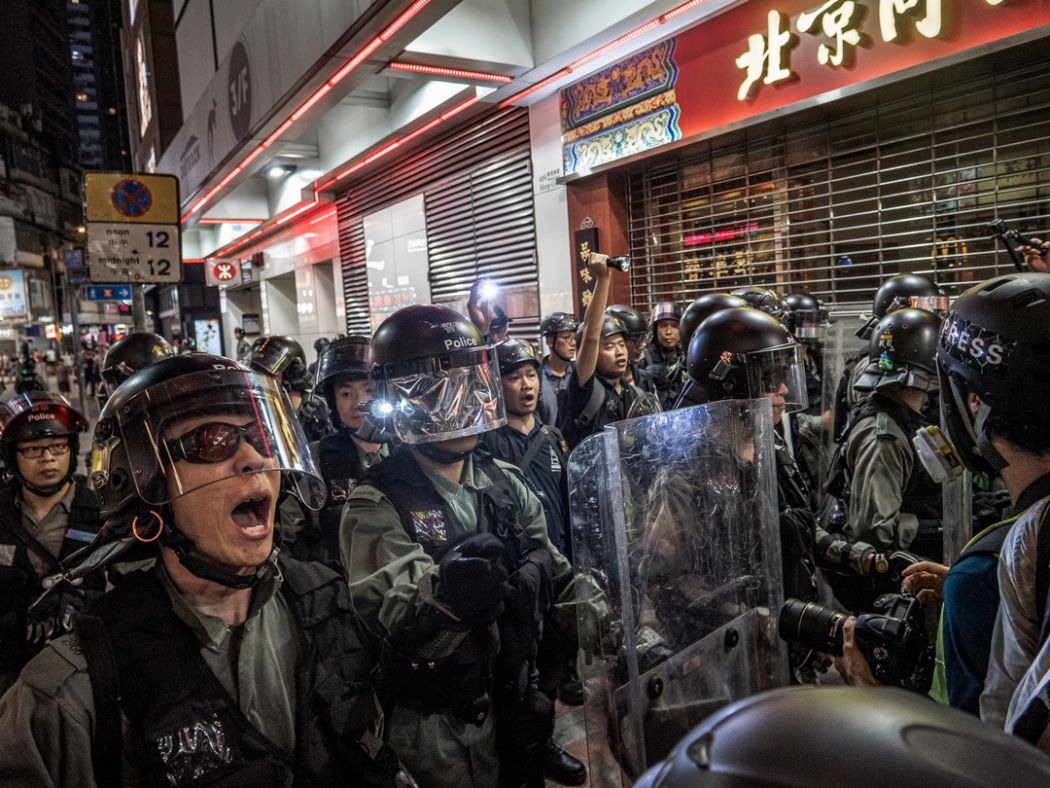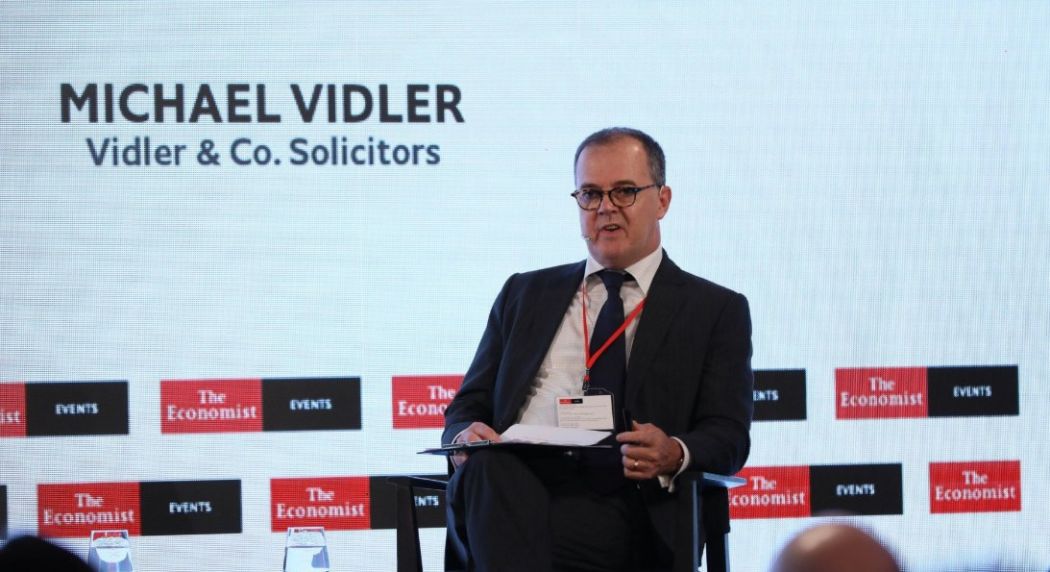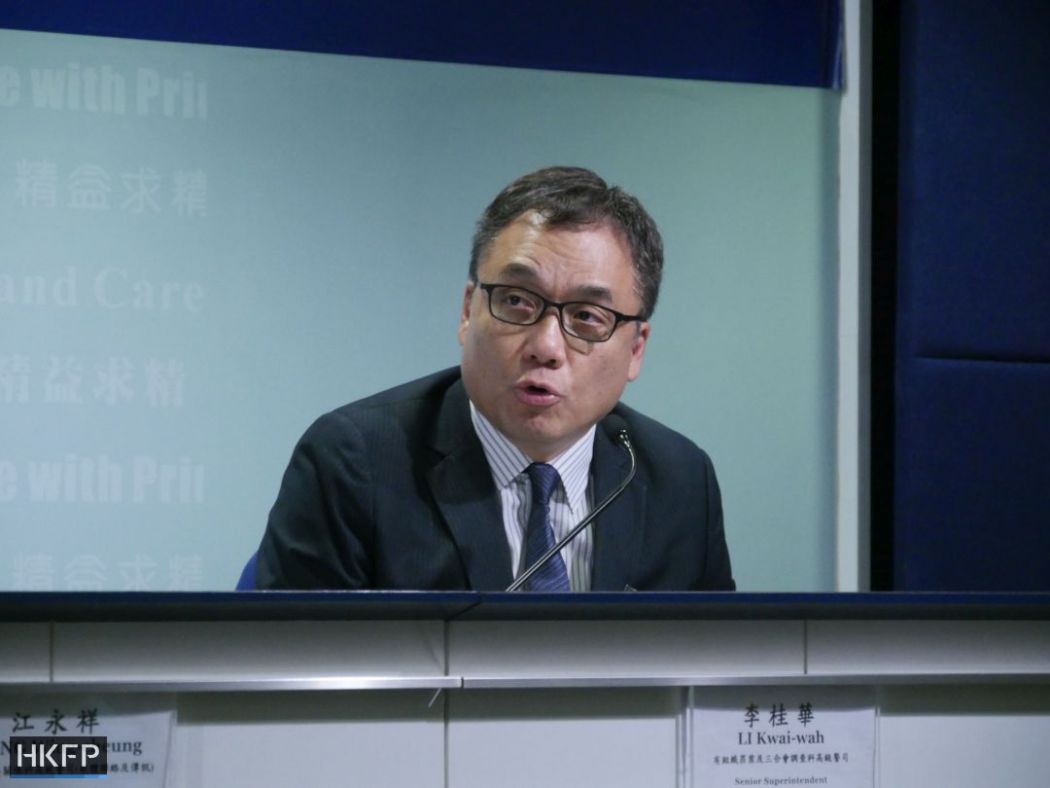Lawyers and news organisations in Hong Kong have raised objections after a court was asked to hide the identity of police officers, saying that it would harm press freedom and reduce transparency in legal proceedings.
The Department of Justice asked the court to grant anonymity to multiple police officers, including the officer who was allegedly slashed in the neck in Kwun Tong and two officers who were allegedly assaulted by lawmaker Au Nok-hin.

Prosecutors also asked for anonymity for two police witnesses in the case of a taxi driver who was allegedly beaten up by protesters. According to Stand News, there were at least two more magistracy-level cases where the DoJ made similar applications for anonymity.
In a joint statement, seven professional groups and news organisations – including HKFP – said that the situation involves “fundamental issues of the freedom of press guaranteed under Article 27 of the Basic Law and the right to fair and public hearings under Article 10 of the Hong Kong Bill of Rights.”
“We also believe these steps by prosecutors to prohibit the publication of the names and service numbers of ordinary police witnesses in magistracy proceedings, is unprecedented and should be of great concern to all Hong Kong people who value press freedom, open justice, accountability and transparency,” the statement read.

Other signatories included the Hong Kong Journalists Association (HKJA), Citizen News, Ming Pao Staff Association, Stand News, the Independent Commentators Association and Journalism Educators for Press Freedom.
Human rights lawyer Michael Vidler told HKFP that the recent anonymity orders were an “extraordinary step.”
“They are just normal police witnesses, not deep undercover officers who are working in triad cases. These are ordinary police officers who appear in the court practically every minute of the court’s operation,” Vidler said.
Approving the request could “open the floodgates,” he added: “If the court grants this anonymity order, it would follow that the officers could testify behind a screen or give evidence via video link… we will have stepped over the Rubicon.”

Barrister Johnny So told HKFP that the trend was “not healthy” and he was worried about it becoming normalised.
“The court usually only grants anonymity to vulnerable witnesses or witnesses in fear, like a victim in a sex crime, child abuse, or blackmail cases,” So said. “The police are meant to protect the public, they are not the ones who require protection.”
Section 156 of the Crimes Ordinance provides anonymity for complainants in an alleged sexual offence, while section 79B of the Criminal Procedures Ordinance sets out special court procedures for vulnerable witnesses.

It was not common practice in Hong Kong to grant anonymity to police officers, even for cases of assaulting police where the officer was the victim, So added.
Doxxing fears
On Friday, Senior Superintendent Steve Li denied that police enjoyed any “special privilege” in court, adding that officers only asked for anonymity because they could be victims of harassment and doxxing – the release of their personal information online.
The same reason was also cited by the prosecutors in the Thursday hearing, saying that officers may be afraid to testify in court otherwise.
Both Vidler and So told HKFP that they objected to doxxing, but believed that the situation did not justify the widespread use of anonymity orders or gag orders.

“I’m worried that the government may use this to demonise protesters, to create the impression that they would seek revenge against the police,” So said. “Unless they can prove the threat is real, it would only be speculation.”
Any such requests for anonymity must be decided on a case-by-case basis, and must be balanced with other concerns such as open justice, he added.
In a statement to HKFP, a Department of Justice spokesperson would not comment on ongoing cases.
Referring to prosecutors’ Indictment Rules, the spokesperson said that an accused person who is indicted should have a description or designation “reasonably sufficient to identify him” – but this does not necessarily mean using the person’s name.
As for victims of crimes, the Victims of Crime Charter state that “victims and witnesses are entitled to have their rights to privacy and confidentiality respected,” the spokesperson added.
Hong Kong Free Press relies on direct reader support. Help safeguard independent journalism and press freedom as we invest more in freelancers, overtime, safety gear & insurance during this summer’s protests. 10 ways to support us.

